It really shouldn’t surprise you to hear that mold exposure is harmful to your health.
We now have numerous studies that link exposure to the toxins from mold to many medical conditions including:
- Chronic fatigue syndrome
- Infection sensitivity
- Respiratory infections
- Immune dysfunction
- Fungal sinusitis
- Asthma
- Neuropathy
And now we can add thyroid dysfunction to that list.
A recent study from 2017 (1) has clearly shown a link between mold exposure and the development of thyroid dysfunction.
Why is this important?
Well, in a world where diagnosing thyroid problems is increasingly difficult, you as a patient should be aware of all possible causes to ensure that you get the right treatment.
We already live in a world where thyroid patients are largely unhappy with their current treatment regimens and we have veteran thyroid patients (those who have had thyroid disease for 10+ years) who report virtually NO improvement in their symptoms despite receiving thyroid medication.
Understanding this mold connection can serve to help YOU as a thyroid patient because it may help you get the right treatment.
The problem with thyroid dysfunction related to mold exposure is twofold:
#1. It causes a thyroid dysfunction lab pattern which most doctors are NOT looking for.
And…
#2. The treatment for this condition is NOT conventional (more on this below).
Let’s talk about each of these and how it relates to you…
This Damage is not Easily Detectable
As I mentioned above, diagnosing thyroid dysfunction from mold exposure is not necessarily easy to diagnose.
It is but it isn’t.
Let me explain:
Once you expand your understanding of thyroid lab testing beyond the TSH it becomes very easy.
But if you are still in the mindset (like most doctors) that the only way to test for thyroid dysfunction is by looking at the TSH then you may completely miss mold-related thyroid problems.
And the reason for this is simple…
Mold exposure results in a thyroid lab pattern known as non-thyroidal illness syndrome or NTIS for short.
NTIS can be simply understood as a set of thyroid lab changes that can be caused by multiple medical conditions.
The fact that you have this lab pattern is not as important as what caused it but you still need to understand what it looks like.
The problem with the NTIS lab pattern is that you MUST order certain tests that most doctors aren’t accustomed to ordering.
NTIS will NOT show up with standard lab testing of the TSH and free T4.
Instead, you need to order further thyroid lab tests including the free T3 and reverse T3.
NTIS shows up as the following thyroid lab pattern (2):
- Low free T3 (VERY important finding)
- Normal to high reverse T3 (usually high)
- Low to normal free T4
- Normal TSH
Hopefully, you can see the problem by looking at these labs.
It’s both possible (and probable) that your doctor could completely miss the diagnosis if they look only at the TSH and free T4.
If your TSH comes back normal and your free T4 comes back low-normal then you may be flagged as “fine” when the reality is quite the opposite.
For this reason, it is worth it to fight for the additional lab tests that I have listed above.
And don’t worry, pretty much all lab companies can order and test for them (and they are covered by insurance).
If you are having trouble getting these lab tests ordered from your doctor then you may want to print out this study and take it in.
Treating Thyroid Problems from Mold
Here’s where things get even more interesting.
The study in question showed that while many of the patients who were exposed to mold received thyroid treatment in the form of thyroid medication they didn’t actually see any improvement in their symptoms.
Put another way:
Their thyroid medication wasn’t working.
Why is this?
In order to understand why you have to understand just a few quick basics of thyroid treatment.
The patients who were NOT recovering were taking T4-only thyroid medication.
And, unfortunately, most people who have thyroid dysfunction take this type of thyroid medication.
In fact, most thyroid medications prescribed to patients contain only T4.
You know if you are taking a T4 thyroid medication if you are using levothyroxine, Synthroid, Levoxyl, or Tirosint.
These medications contain ONLY T4 thyroid hormone and these are the medications that do NOT work for those exposed to mold.

Instead, the study found that it wasn’t until patients started to take T3 thyroid hormone they actually saw some improvement.
And their improvement was so good that they actually returned to almost a normal state before their exposure.
4 patients who were on disability were actually able to return to work following treatment with T3 thyroid hormone when T4 thyroid medications failed.
So what gives? Why the difference?
It’s actually really easy to understand.
For this to make sense you only need to understand two important facts:
- #1. T4 is the INACTIVE thyroid hormone and must be activated into T3.
- #2. T3 is 300x more biologically active (3) and is really the only thyroid hormone that you should care about.
Why didn’t T4 medication work for these patients?
Probably for several reasons.
The first may have a genetic component and the second may be more related to thyroid physiology and function.
There are simply some individuals, due to their genetics, who simply don’t tolerate T4 thyroid medications.
We don’t really know exactly how many people fit into this category but estimates put it somewhere between 10% and 20% of ALL thyroid patients.
And, for those keeping track, this is a huge percentage and may explain why so many thyroid patients even without mold exposure feel crappy despite taking thyroid medications like levothyroxine!
The second reason is probably due, at least in part, to the specific problems that mold exposure causes.
It seems that mold exposure is more of a chronic condition that results in a chronic inflammatory response.
The chronic nature of this condition negatively impacts certain thyroid enzymes which are responsible for the conversion of T4 to T3.
Put in another way:
Mold toxins inhibit thyroid conversion from working properly.
This means that you can take all of the T4 thyroid medication that you want but the mold prevents your body from activating it.
It seems that the only way to bypass this problem is by providing your body with T3 directly.
By doing so you bypass the conversion process and directly provide your body with the T3 that it needs.
Other Important Therapies
While using T3 thyroid hormone is incredibly important as far as treatment goes, it’s not the only thing you should be aware of.
The patients in this study not only received T3 thyroid hormone but also received a couple of other therapies.
In addition to T3 thyroid hormone some patients also received hydrocortisone and DHEA.
Both of these are hormones (bio-identical) produced by the adrenal glands.
And even though these therapies aren’t necessary for all people with thyroid dysfunction we can still learn something very important from their use.
And that is this:
Thyroid dysfunction of any type will almost always cause adrenal-related issues.
The degree of adrenal gland dysfunction depends on the severity of your thyroid problem, how long you’ve had it, and if the problem affects your adrenal glands directly.
We know, for instance, that mold exposure probably plays a direct role in dysregulating the adrenal glands which is why these patients needed to use hydrocortisone and DHEA.
And this degree of dysfunction is typically milder in cases of run-of-the-mill hypothyroidism and Hashimoto’s.
But the lesson is still important:
You should not neglect your adrenal function and if you are treating your thyroid you should ALSO treat your adrenal glands.
There are a number of ways to do this and among my favorite are the use of adrenal adaptogens and adrenal glandulars.
The patients in this study might have benefited from these therapies but they opted for the more aggressive route of using hormones instead of botanicals and herbs.
Again, what’s important here is that you should be aware that your thyroid and adrenal glands are linked, and if you treat the one you should treat the other.
And lastly, back to the topic of mold exposure, you should be aware that removing yourself from the SOURCE of mold exposure is priority #1 in terms of treatment.
The results of this study showed that even though T3 thyroid hormone, hydrocortisone, and DHEA were helpful in making patients feel better, the patients who did the best were the ones who did these therapies PLUS removed themselves from the source of the exposure.
So keep that in mind if you believe you are currently being exposed.
Your Next Steps
What does all this information mean to you?
First off, you should be aware that mold exposure causes thyroid problems.
Secondly, you should be aware that mold exposure requires different treatments compared to regular hypothyroidism.
And thirdly, you should be aware that this condition exists because it may be playing a role in your body.
I would say this information is particularly important to ALL thyroid patients who are currently taking thyroid medication and not feeling well.
Not necessarily because it means that they are being exposed to hidden mold (although this could be true) but because you can draw important information from this study.
For starters:
The use of T3 thyroid hormone has an important role in the treatment of all thyroid conditions.
I’ve long been a huge proponent of using T3 thyroid medicines like Cytomel and liothyronine and strongly believe that MOST thyroid patients should use T3 in some form (4).
In addition, you can use this study as ammunition to help persuade your doctor to change your treatment regimen.
Doctors are always hesitant to try “new” therapies (even though T3 treatment isn’t really new) but if they know they have been tried and proven useful then they are more likely to use them.
And lastly, it just may be that mold is causing your thyroid condition and is something that you should seriously look into and consider.
Now I want to hear from you:
Does this study surprise you?
Were you aware that mold can cause thyroid problems?
Do you suspect that your thyroid problems may be caused by mold?
Do you have any other symptoms which may suggest mold exposure?
Leave your questions or comments below!
Scientific References
#1. https://www.ncbi.nlm.nih.gov/pmc/articles/PMC5545575/
#2. https://www.ncbi.nlm.nih.gov/pubmed/443685/
#3. https://www.ncbi.nlm.nih.gov/pubmed/556986
#4. https://www.ncbi.nlm.nih.gov/pmc/articles/PMC6726361/
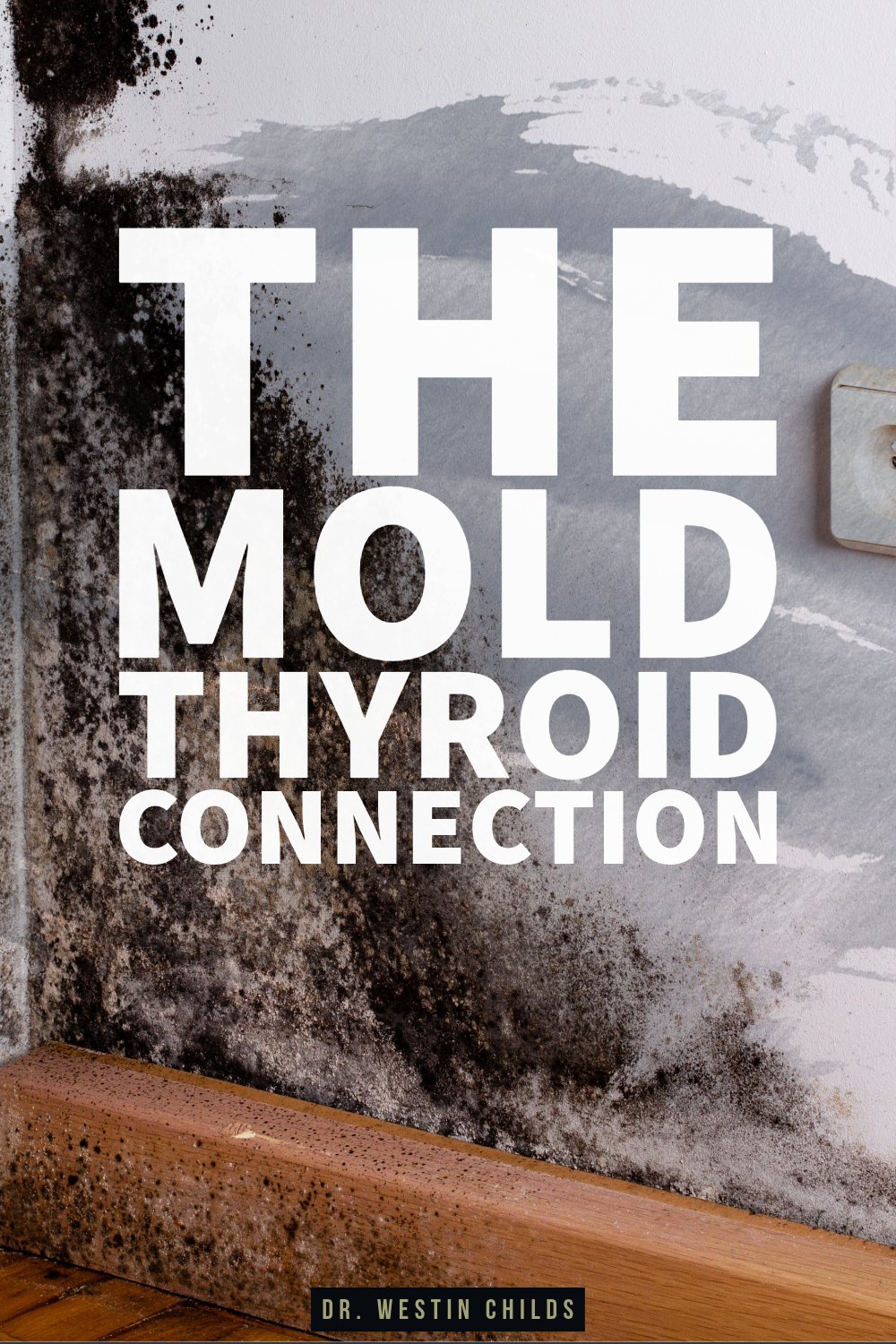
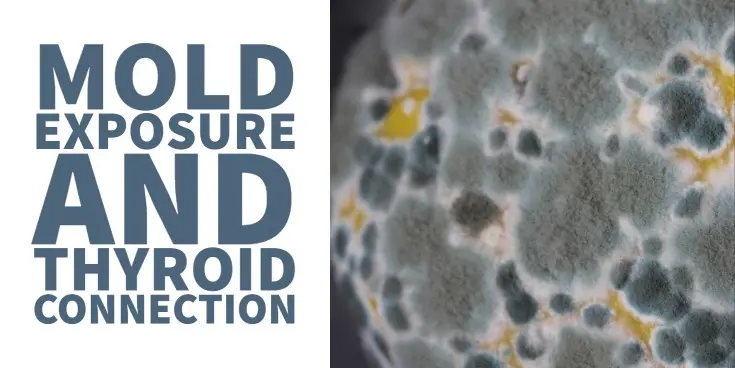
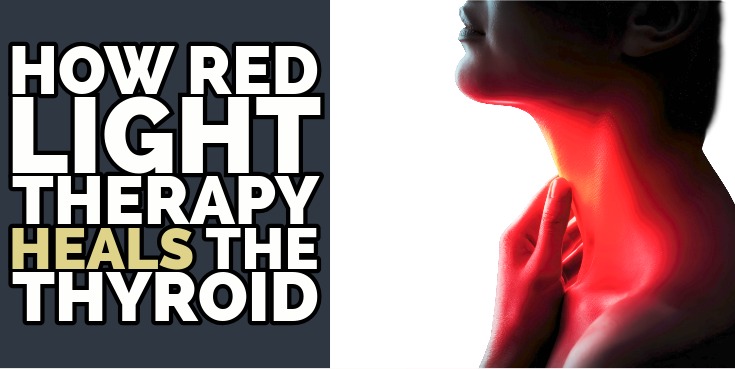
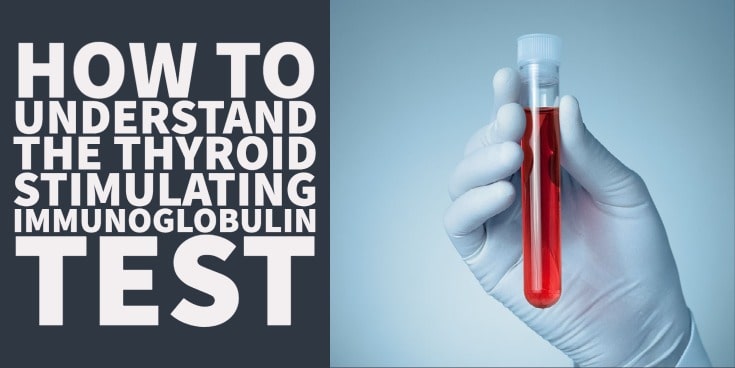

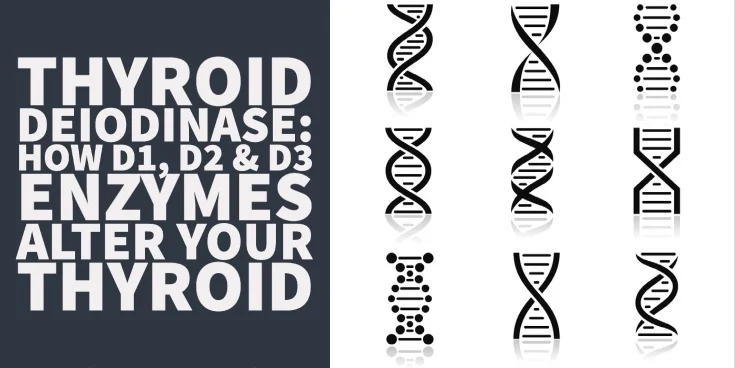
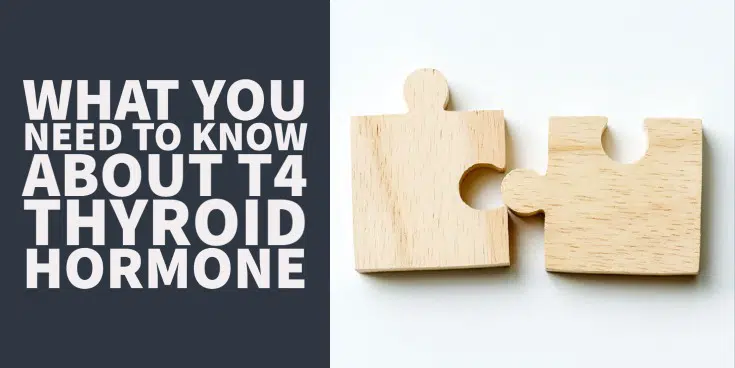


Thank you Dr. Childs for this post. I have been suffering from mold exposure and have had low T4 and weight loss resistance. Can you do more videos about the Leptin connection with mold and weight. I have heard that ACTOS helps to get the hypothalamic system unstuck, but it could cause weight gain and it has a black box warning. I have the genetic susceptibility from CIRS, and have been trying to figure all of this out. Surviving mold website has been helpful, especially concerning how mold affects ALL your hormones, sleep, and inflammation levels.
I too was just diagnosed with CIRS from mold. I have high leptin, unexplained weight gain and severe insomnia. TG4 Beta off the charts in inflammation. Would Naturethroid be recommended for the thyroid?
Hi Donnell,
Usually, anything with T3 is ideal for people in your situation. Naturethroid would be okay but may not be enough depending on the severity of your condition.
T3 is horrible!!! I was diagnosed hypo. Been chasing it for years to only find out I was misdiagnosed, been dealing with mold exposure. An ill knowledge doc or docs didn’t know the correct labs to run or how to teat. My thyroid was making the hormones, it just wasn’t converting bc my body was so stressed from the mold exposure.
First time I crashed, I was told to use T3. It made everything worse. My 4 pt saliva test showed high cortisol. I treated using cortisol lowering supplements list in this article, thought it was better. Then we tore out a water damaged wall. I crashed again. Went after adrenals and yet again had high cortisol. Been messing with it for over a year and my ft3 was optimal even in the mold. A year of trying told solve what was wrong bc docs haven’t helped at all, I finally discovered there was mold in our bathroom. That being said, yes thyroid can cause adrenal issues but someone dealing with mold, it most absolutely will mess with adrenals. Cortisol is a natural inflammatory and mold and upregulate or downregulate your cortisol. Someone who is sick such as with mold, their T3 goes down as their rt3 goes up. Just bc the T3 is low, doesn’t mean thyroid isn’t making the hormones. You have to look at the relation between ft3/ft4 and rt3.
Mold also mimicks estrogen in the body so it throws off your hormones off. Anyone educated in thyroid or Adrenals knows hormones also play together with these 2 things
From personal experience, T3 is not always the answer. And neither is NDT. I saved all my blood work from get go and after learning how to properly read and interpret them, my thyroid was always making the t3 hormone. Adding in NDT only made me more hypo. T3 made all my adrenal issues so much worse.
How did you determine mold was your issue? Are there blood tests you can do? Or just checking the house for mold? Thanks!
I was inquiring this myself. Allergy panels looking for low IgE (immunoglob. E) would be 1 indicator via a blood test.
However, is there a more comprehensive panel that will determine several strains of mold?
Did anyone write back to you, Chelsea?
Thanks!
Great Plains laboratory. Com need doctor code to get: this is the best test:
MycoTOX Profile (Mold Exposure) cost $650. But it will show you which types of molds to help narrow down the source. Check home AC units vents and the drum or fan inside the handler. After a professional cleaning (when they remove fan to clean it properly) make sure air ducts get cleaned out and sanitized as well then have a UV light or even better the “Reme Halo” installed inside air handler to keep air sanitized and 99.9% free of bacteria and mold. If you live in hot climate be aware that mold can grow inside cars too, check AC vents etc.
Very Interesting. How are you treating?
This is so helpful. Thank you for sharing Melanie.
Great article to read and highly beneficial information on Mold and thyroid problems. Worth to read articles. Keep sharing more.
I have low free T3 and low/normal T4 and high rvs T3. Brain fog and extreme fatigue are my symptoms. Hasn’t resolved with T3 medicine (20mcg seems all I can handle). What test can you ask your doctor for to find out if you’ve got mold in your system?
Great Plains lab I think is the lab
How do you diagnose if someone has mold problem?
Dr Child’s, how do you diagnose mold exposure and the associated issues? My thyroid labs follow this pattern. My MD doesn’t believe I need any meds. My ND prescribed Armour and I feel better but not good. I would say it decreased the severity of my symptoms but has not resolved them. Thank you!
Dear Dr Westin,
How can one get tested for mold who has thyroid issues?
Dr. Child’s,
If a Hashimoto’s patient has been treated strictly with T3 (100 mcg daily) due to a T4 to T3 conversion issue that preexisted prior to mold exposure, what would you expect to see in that patient’s thyroid hormone level test results in the case of mold exposure? Since that patient was already prescribed T3 while exposed to mold, but was not given hydrocortisone and DHEA,
what would that thyroid hormone level profile look like???
How do I know my house has mold? Do I test the house (very expensive) and/or test my body? I have pretty good insurance,
Anthem Medicare Preferred, but the test my doctor suggested will cost me $400 at Quest.
I bought at home test kits from amazon (about $40-$50 and they include a petri dish (or tape if you can actually see the mold) and I just had to pay for the shipping to the lab and they emailed me the results). Some will say they aren’t accurate but if you can’t afford a professional test then it’s better than nothing.
Since my tests came back postive for me my next step is to hope my doctor will test for mold in my blood (I never have luck getting a full thyroid panel but I will try to push for it again, especially this time since I live in an apartment and need what I can to break the lease if it’s makeing me sick.
No I did not but I wanted some information about my blood work if I can email it to you to know what do you think of it and what are some blood work I needed to do more
I too am in this class of NTIS – Low T3 due to mold. I tested with Great Plains lab for my body burden and it was super high for several mycotoxins. I tested the home as well as my parents home where I visit monthly to care from them. Their home tested off the charts! I know my source, but have difficulty getting away from it. My naturopath couldn’t figure my throid and possible NTIS out after 5 years, then I went to an open-minded excellent Endo who took one year of raising my T4, raising my T3, (combo therapy) eliminating all T3 when I developed cardio issues, and then finally said you may have NTIS. Thyroid health from various tests including U/S showed a healthy responsive thyroid glad that was not converting T4 to T3. So she took me off all thyroid meds. Then 6 weeks later I developed SIBO. Very ill and trying to treat that now. Obviously the low dose thyroid meds I had been taking did SOMETHING for body, at least in terms of motility. Now my Endo is doing a trial of T3 only, 5mcg to start. Once I clear the SIBO, I will return to my mold eradication plan which involves the use of binders and other herbals from Microbe Formulas. It’s a long process. I am hopeful and want to believe that what Dr Childs states in this article will be an effective thyroid support for me while I try to limit my exposure and clear out the body burden of mold. Please comment-
Hi Sue,
I’d be happy to but I’m not sure I understand the question. Can you please clarify?
Dr Childs-
Is it possible that T3 monotherapy may do nothing for me as I work to eliminate the body burden of mycotoxins/molds/candida? The 5mcg seems like a low dose and it may not be enough. I suspect after my labs and endo appointment in 2 weeks, she will probably try to increase dose since I am feeling poorly. From your experience, what is typical dose for someone NTIS due to mold?
Hi Sue,
T3 will definitely still work if you have mold exposure and are dealing with the side effects associated with that. You just may need a higher dose. There really isn’t a standard for anyone, but the more medical conditions (mold would be included here) that are present the higher the T3 dose needed.
Thank you! I love reading your blog!
Once the patient is removed from the mold and it’s cleared from the body, does the body start to convert T4 to T3 again? And can you stop taking the medication?
There is no signs of Hashimoto, if that is relevant.
Hi Truskie,
Yes, thyroid function should improve in that situation. You can learn more about potentially getting off thyroid medication here: https://www.restartmed.com/how-to-get-off-of-thyroid-medication/
I have had hashimoto’s for 15 years. I did a recent toxin panel and found that I have mold toxicity. (I knew of my mold exposure 20 years ago.) Like your article states, I have a conversion issue. I am currently on a T4 and T3 combo. My question is, what do I do now to help relieve my body from the mold exposure? I see you mention aiding the adrenal glands (would that be with an adrenal glandular or with something like ashwaganda)? I think my thyroid meds are now on the right trajectory but I’m sure of how to supplement for the mold toxicity.
Hi Karen,
For most people, eliminationg of the exposure is sufficient. Some may require additional treatment in order to get well, but removing the mold and yourself from the environment should be enough when combined with time.